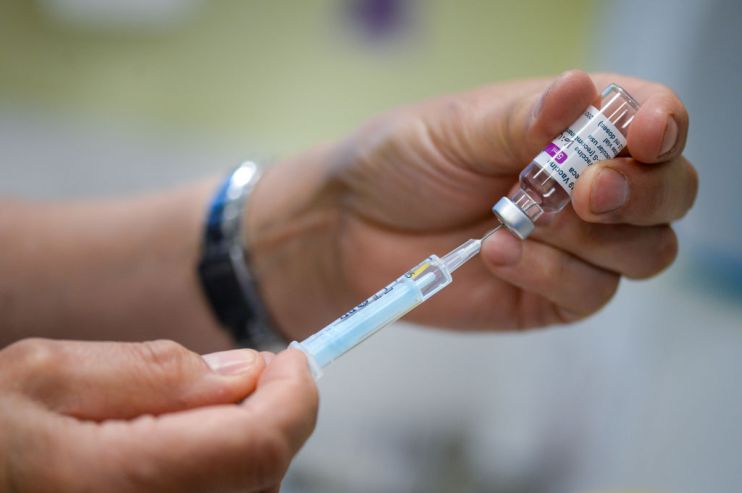Sanofi and GSK begin phrase three vaccine trial following up to 100 per cent efficacy win

Sanofi and GlaxoSmithKline (GSK) started enrolment in their Phase 3 clinical study today to assess the safety, efficacy and immunogenicity of their Covid-19 vaccine candidate.
Earlier this month the pharmaceutical partnership reported booming success in their Phase 2 trial, with their vaccine showing between 95 to 100 per cent seroconversion – meaning the transition from the point of viral infection to when antibodies of the virus become present in the blood – following a second jab, with no safety concerns found.
The pair’s Phrase 3 study will include more than 35,000 volunteers aged 18 and over from several countries, including places in the US, Asia, Africa and Latin America.
The study will initially look at the efficacy of the vaccine in targeting the original Covid-19 virus first found in Wuhan, while the second stage will look at the vaccine targeting the so-called South African variant, a more transmissible version of Covid-19.
If all goes well, the pair believe their vaccine could receive regulatory approval in Q4 2021.
“We are encouraged to see first vaccinations starting to take place in such an important, pivotal Phase 3 study, as we believe that our unique technology platform will provide a clinically-relevant vaccine option,” said Thomas Triomphe, executive vice president and global head of Sanofi Pasteur.
“We have adapted our vaccine development strategy based on forward-looking considerations as the virus continues to evolve, as well as anticipating what may be needed in a post-pandemic setting.”
Roger Connor, president of GSK Vaccines added: “We believe further solutions for Covid-19 are very much needed to help reach people around the world, especially as the pandemic evolves and variants continue to emerge.
“Adjusting our technology and study designs reflects this need and will further build the potential of this adjuvanted protein-based vaccine.”
The recent success comes after Sanofi and Glaxosmithkline’s vaccine programme was delayed late last year, after a study showed an insufficient immune response in trial results.
The delay marked a disappointing moment for the two companies, after a number of new Covid vaccines had been approved.
More than 38 million people in the UK have had a first dose of a Covid vaccine, while more than 23 million have had a second dose, giving them more protection against the virus.